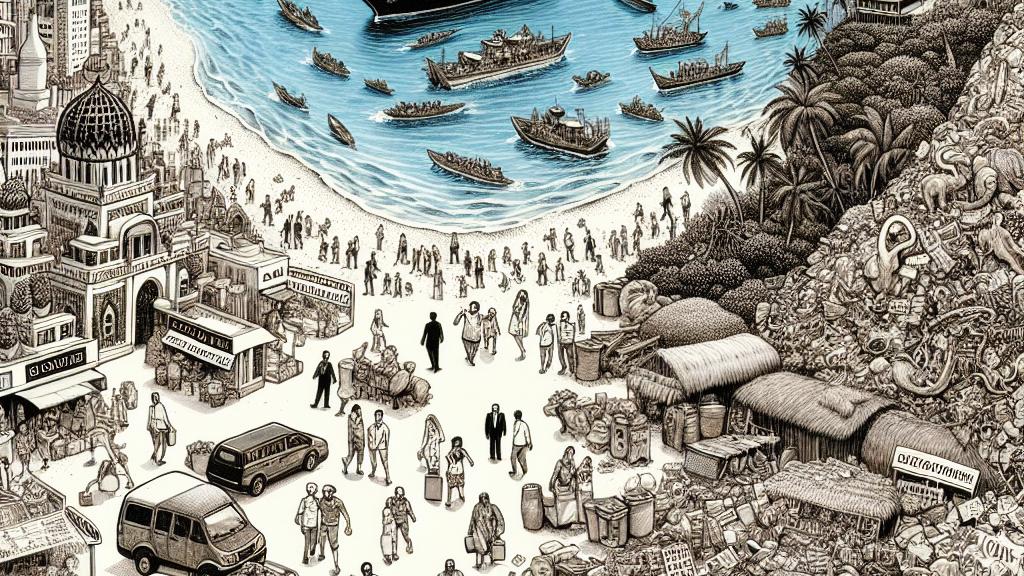Handling Waste Challenges as Tourism Returns to Phuket
Overview
- Phuket grapples with a staggering surge in waste due to the influx of tourists.
- Local authorities urgently seek creative community solutions for recycling and composting.
- Urgent sanitation concerns at beaches underscore the pressing need for robust waste management.

Tourism Boom: A Double-Edged Sword
Phuket, Thailand, renowned for its breathtaking beaches and vibrant nightlife, welcomed an astonishing 11 million tourists last year—a striking increase from only 5.7 million two decades ago. This explosive growth in tourism doesn't come without consequences; it has resulted in a whopping 1,100 tonnes of waste generated daily, up from just 742 tonnes in 2022. While the increasing number of visitors offers economic booster shots and bustling local businesses, it simultaneously poses grave challenges for waste management. Authorities are now charged with the critical mission of implementing sustainable practices to align with this burgeoning tourism, all while maintaining the island’s pristine environment and appeal.
Overwhelmed Waste Management Systems
Despite its beauty, Phuket's waste management infrastructure is struggling to cope with the escalating demands. With only one operational incinerator capable of processing 900 tonnes per day, much of the remainder is either dumped in overcrowded landfills or left in the streets. Alarmingly, about 60% of the waste is categorized as organic—a staggering statistic that highlights untapped potential for composting. To tackle the crisis, local officials have initiated several grassroots programs, including the innovative 'garbage bank' project in the Samakkee Samkong community. This initiative encourages residents to recycle their organic waste and transform it into nutrient-rich compost, thereby reducing the burden on disposal facilities while fostering a sense of community ownership and environmental responsibility.
Empowering Communities: The Key to Sustainability
Community engagement is absolutely vital in addressing the waste crisis facing Phuket. Local residents and tourists alike are encouraged to participate in beach clean-ups, particularly during the rainy season when debris often washes ashore, turning collective action into a compelling movement for change. Furthermore, visitors dining at local restaurants can enhance their dining experience by looking for establishments proudly displaying the green “Clean Food Good Taste” signs, which signify adherence to stringent hygiene and sanitation standards. By actively promoting environmental awareness and encouraging community involvement, Phuket can not only combat its waste management challenges but also enhance its appeal as a socially and ecologically conscious tourism destination—a true treasure worth preserving for future generations.

Loading...